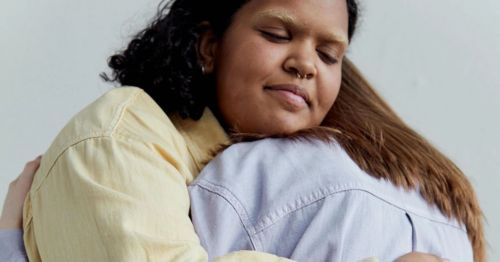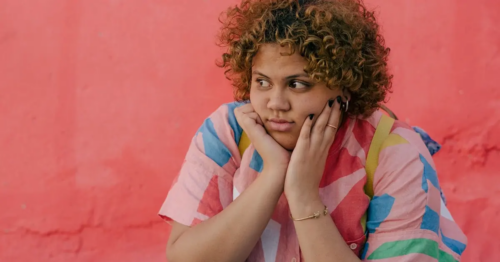
Table of Contents
Supporting LGBTQIA+ Mental Health This Pride Month (and All Months)
Written By: Charlie Health Editorial Team
Updated: June 5, 2024
4 min.
Six actionable tips from Megan Lederman, LPC, MA, Charlie Health’s Director of Clinical Programming, on supporting LGBTQIA+ loved ones year-round.
Learn more about our Clinical Review Process
Table of Contents
During Pride Month (and year-round), it’s essential to offer support to LGBTQIA+ loved ones and promote well-being in queer communities. LGBTQIA+ allyship isn’t just displaying a rainbow flag in your office or going to a pride parade (though those things can be worthwhile, too); it’s about the active and ongoing commitment to supporting, advocating for, and uplifting LGBTQIA+ people, particularly in the fight for equity and justice.
Despite advancements in LGBTQIA+ rights and visibility, discrimination, stigma, and lack of affirmation persist, significantly impacting mental well-being. Data consistently shows that LGBTQIA+ youth face disproportionately high levels of depression, self-harm, and suicidal thoughts and behaviors compared with their non-LGBTQIA+ peers. Moreover, access to affirming and competent mental healthcare remains limited for many in the queer community.
In honor of Pride Month, we spoke with Megan Lederman, LPC, MA, Charlie Health’s Director of Clinical Programming, about ways to be an ally and support your LGBTQIA+ loved ones—this month and all months.

Charlie Health offers identity-affirming care
Intensive mental health treatment with other LGBTQIA+ young people.
6 ways to support LGBTQIA+ mental health
Here are six ways all people can work to support LGBTQIA+ mental health and well-being, as recommended by Lederman.
1. Recognize and affirm their identity
One of the most fundamental ways to support your LGBTQIA+ loved one is by recognizing and affirming their identity when they share it with you. Discussing something as personal as gender identity and sexual orientation might be difficult for your loved one. It requires real courage, conviction, and vulnerability to share this kind of personal information, and by inviting you in, they’re saying that they trust you with this important piece of who they are.
“When a person shares their identity with you, you have the opportunity to get to know and support them in a richer, wider way,” says Lederman. “They are still the person you’ve always known, and now you get to love them in a new way.” Affirming someone’s identity creates a safe and inclusive environment where they feel accepted and valued for who they are.
2. Offer unconditional love and support
Unconditional love and support form the cornerstone of your relationship with your LGBTQIA+ loved one. Recognize that their journey may involve challenges, and be there to provide unwavering support. “People may not have always been able to show up for them in the ways they deserve, and if you’re invited in as a member of a chosen family or chosen kinship network, that is really an honor,” says Lederman, referring to bonds of mutual love and support that transcend biological family ties.
3. Respect their autonomy
Respecting your loved one’s autonomy means allowing them to define their identity on their own terms. “Consider asking your loved ones open-ended questions, asking them to share with you what their identity means to the extent that they are comfortable,” Lederman encourages. This can also look like using someone’s correct pronouns and honoring and celebrating their gender expression.

4. Educate yourself
Education is key to understanding and empathizing with your loved one’s experiences. Take the initiative to educate yourself about LGBTQIA+ identities, challenges, and community resources. “Try to do your own work since it could be really an extra labor for your family member or your friend to offer you education,” says Lederman, encouraging people to start with the resources provided by The Trevor Project.
5. Advocate for their rights
Stand up against discrimination and advocate for LGBTQIA+ rights in your community. “This can include supporting inclusive policies and challenging discriminatory behavior when you encounter it,” they add. By using your voice and influence as an ally to promote inclusivity and combat prejudice, you can help create a more supportive and accepting environment for LGBTQIA+ people to thrive.
6. Encourage them to seek support as needed
Part of being an ally is knowing when to intervene — including when you notice your LGBTQIA+ loved one may need professional mental health support, in which case it’s essential to encourage them to get the help they need. Lederman specifically encourages seeking gender- and identity-affirming care — like that offered at Charlie Health — which incorporates a person’s identity into treatment and has been shown to improve mental health outcomes.
You can remind your loved one that prioritizing their mental health and seeking support is a courageous step toward healing and growth. By advocating for their access to mental health services and resources, you play a vital role in supporting their well-being and resilience as an ally.

LGBTQIA+-affirming mental healthcare at Charlie Health
If you’re an LGBTQIA+ young person looking for mental health support (or know someone who is), Charlie Health is here to help. Charlie Health’s virtual Intensive Outpatient Program (IOP) offers LGBTQIA+-specific cohorts to ensure queer clients are seen and heard in treatment, fostering lasting healing. The program combines peer groups, individual therapy, and family therapy, all facilitated by culturally LGBTQIA+-affirming clinicians. Fill out the form below or give us a call to start your healing journey today.




